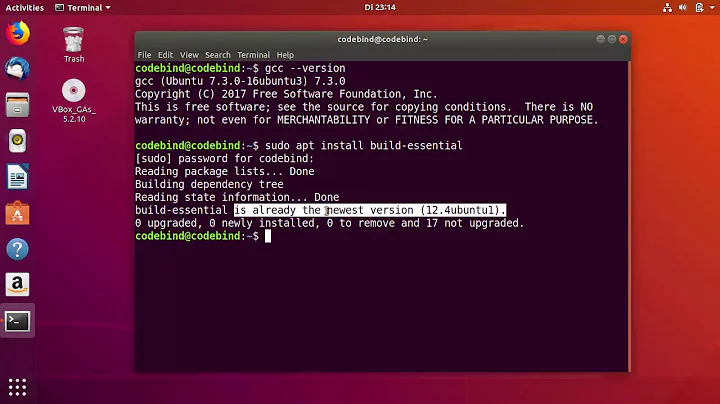How to use GCC 4.7 in place of 4.6?
The following worked for me.
sudo update-alternatives --install /usr/bin/gcc gcc /usr/bin/gcc-4.6 60 --slave /usr/bin/g++ g++ /usr/bin/g++-4.6
sudo update-alternatives --install /usr/bin/gcc gcc /usr/bin/gcc-4.7 40 --slave /usr/bin/g++ g++ /usr/bin/g++-4.7
sudo update-alternatives --config gcc
Related videos on Youtube
Larz Conwell
Updated on September 18, 2022Comments
-
Larz Conwell over 1 year
So I'm working on a project and I wanted to use some C11 features for C. To use those features GCC 4.7 is required, so I went to synaptic and looked up 4.7, and I found the packages gcc-4.7-base so I installed it[1].
So now that gcc-4.7-base is installed I expected to be able to use 4.7, but no, when I do
gcc --versionit still shows 4.6.3 even more, when I try to directly call 4.7(via/usr/bin/gcc-4.7) it doesn't exist, though agcc-4.6executable does exist.How do I "activate" GCC 4.7? I read here, you do some crazy stuff with
update-alternatives, but it doesn't work for me as thegcc-4.7executable doesn't actually exist on my machine.Notes: 1. I also saw gcc-4.6-base, so I figured I'd uninstall it, but synaptic attempted to remove every package I had installed and install a Java runtime, so for obvious reason I decided not to remove it.
-
user2390005 about 8 yearsI don't think this answers the question, since the OP specifically said the
update-alternativesroute wouldn't work for them as they didn't have the gcc-4.7 binary available. Indeed, trying to follow the instructions in this answer after installing gcc-4.7-base results in the error:update-alternatives: error: alternative path /usr/bin/gcc-4.7 doesn't exist.




